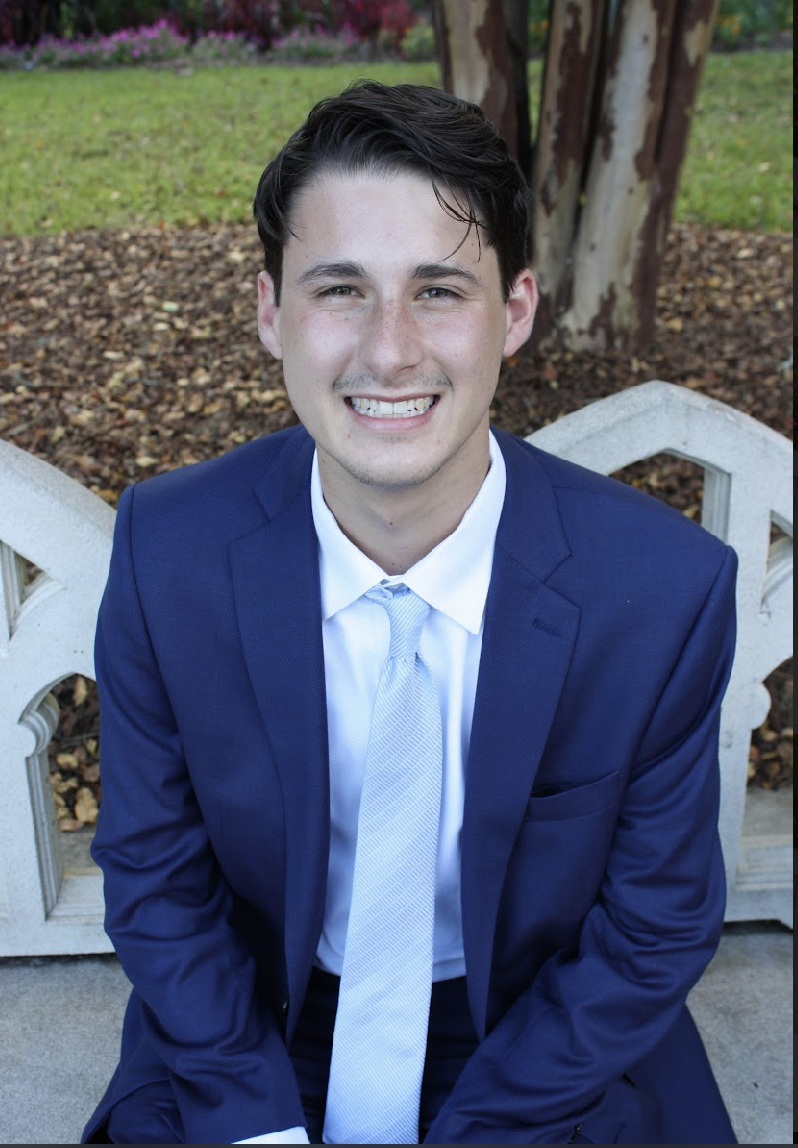Research Symposium
22nd annual Undergraduate Research Symposium
Arthur Egan Poster Session 4: 12:30-1:15/Poster #37

BIO
My name is Arthur (AJ) Egan and I am a sophomore at Florida State University majoring in Biological Sciences. At the university, I am involved with the Medical Response Unit (MRU), Phi Delta Epsilon Medical Fraternity, and I am the Scholarship Chair for Connecting Experimental Lab and Life Sciences. Also I am a certified Emergency Medical Technician. I plan on attending Medical School after my undergraduate studies with an interest in Emergency Medicine, Pediatrics, or Oncology. My research interests with Cancer stems from when I got the opportunity to volunteer with Moffitt Cancer Center, and continued when I learned more about my Nutrition professors' work, who also happened to be my research mentor, in a lab that dealt with the Effects of Alcohol on Cancer Cachexia.
Effects of Alcohol Consumption on Cancer Cachexia
Authors: Arthur Egan , Dr. Jennifer SteinerStudent Major: Biological Sciences
Mentor: Dr. Jennifer Steiner
Mentor's Department: College of Health and Human Sciences, Nutrition and Integrative Physiology Mentor's College: B.S.Ed. in Exercise Physiology, M.S. in Exercise Physiology, University of Virginia; Ph.D. in Applied Physiology, University of South Carolina; Postdoctoral Training in Cellular and Molecular Physiology, Penn State Hershey College of Medicine Co-Presenters:
Abstract
Cancer cachexia is a wasting syndrome as it is characterized by deterioration of adipose tissue and skeletal muscle. Chronic alcohol usage can cause cancer, but it remains unclear how alcohol usage can worsen the effects of cancer cachexia. To test this, six treatment groups were used: control diet no cancer, control diet with cancer, prior alcohol diet no cancer, prior alcohol diet with cancer, alcohol diet non cancer, and alcohol diet with cancer. Mice were acclimated to a non-alcohol control liquid diet then transitioned to an isocaloric Lieber DeCarli alcohol diet at 12% kcal for 7-days, then a 20% kcal alcohol diet for 6 weeks. After feeding, mice in the prior groups transitioned to the alcohol-free control diet. Then, colon cancer cells were injected into the cancer groups. At euthanasia, muscles, fat, and body weights was measured. Muscles were sectioned on a cryostat and stained using immunohistochemical procedures. Cross-sectional areas were analyzed using Image J software and manually outlined and the results are forth coming. Analyses are ongoing, but current data show cancer significantly decreased soleus mass in prior-alcohol and alcohol-consuming mice. Within each diet group, tumor-bearing mice had decreased plantaris and gastrocnemius mass compared to non-cancer mice. Tumor-bearing mice in prior and continuous-alcohol groups showed decreased quadricep mass compared to non-cancer mice. This data is essential to know how alcohol consumption can worsen cancer cachexia. This information teaches patients who have cancer that alcohol worsens the effects of cancer cachexia compared to somebody who has cancer and stops drinking.
Keywords: Alcohol Consumption Cancer Cachexia

